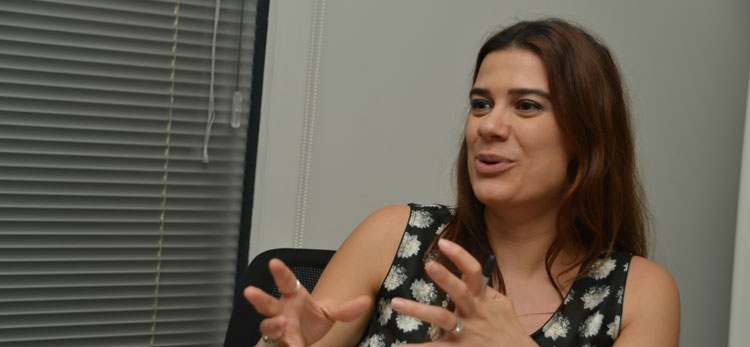
New focus for Cyprus investment
By Frances Miller
The financial crisis of 2013 came as a wake-up call to the government and business community in Cyprus, and has been a key driver behind efforts to push ahead with long-term structural reforms and to attract more investment into the country.
Efforts are already paying off, with Central Bank figures showing net direct investment rising to a record €4.7bn in 2015.
Natasa Pilides, who took over as Director General of the Cyprus Investment Promotion Agency (CIPA) in April after a career in international taxation and auditing, is also keen to reform the way in which CIPA fulfils its role, combining a closer focus on specific sectors and subsectors with promise with its advisory role on strategic reforms.
Founded in 2008 and working under the brand ‘Invest Cyprus’, CIPA is a not-for-profit organisation with a three-pronged mandate: to promote Cyprus as an attractive international investment centre, to provide investor support and after-care services, and to advocate reforms that will promote further investment. “What we need to do is focus,” Pilides told the Cyprus Weekly.
“Before our product was more homogenous. That is not a criticism of what has happened in the past, but it is a question of changing times needing different approaches.”
CIPA is now focusing on specific sectors and subsectors in which Cyprus has unique selling points and strong potential for growth: investment funds, shipping, energy, research, innovation, technology and development (RTD), and niche tourism such as healthcare and cultural tourism.
Plan, plan, plan
However, attracting investment does not happen in a vacuum. It needs a clear strategy and an action plan, such as those successfully implemented for attracting investment funds and shipping to Cyprus.
In order to promote Cypriot funds effectively, CIPA set up the Cyprus Investment Funds Association (CIFA) in 2013, bringing in a separate board of specialists to advise on legislative and administrative reforms to bring the sector up to date.
“The board realised that before taking on the promotional aspects, they had to make the necessary legislative reforms – to bring the sector to a stage where it could be marketed. That was very key,” said Pilides.
The strategy has paid off. The number of funds registered in Cyprus is rising rapidly and assets grew to almost €3bn in December according to Central Bank data, compared with less than €1bn prior to the reforms.
Shipping is also a sector where a specific plan was put in place.
“In shipping we had legislation that was very well thought out. It combines legislation that no other EU member state has, providing advantages to ship owners, ship managers and ship charterers alike, and a tonnage tax system that is endorsed by the EU,” said Pilides.
One key sector where this model will be applied is tourism. CIPA’s plan regarding the promotion of investment in the tourism sector will be based on the long-term strategy for tourism that will be published later this year by the team of international experts advising the government.
“It appears to have the makings of a good plan. We believe in it and we do hope it is going to be applied horizontally and vertically into other development projects, so that for example thematic tourism is taken advantage of,” said Pilides.
Retaining young talent
As a member of the ‘millennial’ generation herself, Pilides is also keen on creating jobs for the young with a strategic plan to promote technology, R&D and innovation.
“Young people have very limited options these days if they want to earn a decent living. They need to have more options in Cyprus. How do we do that? By developing these new sectors. So we are working on marrying up the start-ups with the investors.”
As with other sectors, it also needs legislative reform.
“One very important question to answer here is how we can enhance our legislation regarding incentives to venture capitalists, business angels and other start-up finance.”
Need to fast-track big investors
Asked what was the most important of the many reform bills making their way towards a parliamentary vote, Pilides urges priority for the creation of the Sub-Ministry of Development and the fast-tracking of a significant investment. This should be based on “tangible, objective criteria”, she says.
Slow processes were brought to light in the latest World Bank Doing Business report, which ranked Cyprus a very low 145 out of 189 countries for the time taken to obtain a construction permit.
“While in many areas Cyprus is performing well, ‘time to market’ is something that needs to be addressed in the public sector. Wider use of technology and modernised procedures will play a key role in increasing our competitiveness,” said Pilides.
“We are competing with other jurisdictions. They are constantly evolving.”
In the longer term Pilides sees Cyprus as a leader in investment and not just a follower.
“Yes, we benchmark, we need to know what the good practices are, but we also need to be thinking about new and fresh ideas that our competitors haven’t done before.”
Asked what her thoughts were about Cyprus’ long-term prospects, Pilides is both an optimist and a realist.
“I am positive, but I think it is key to retain the lessons that we have learnt and to continue on the path we are now. So we need to be very serious about how we refocus, because we can either make our economy or break it. We are still in a volatile place,” she said.
Source: http://in-cyprus.com/



